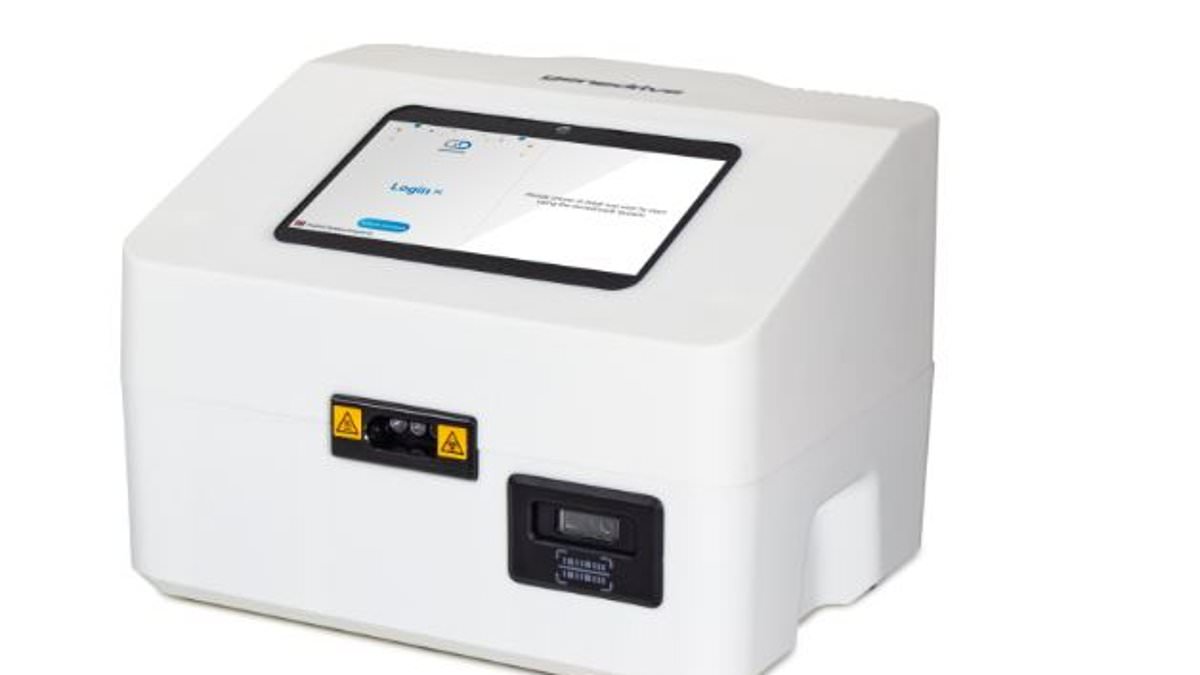By Editor,Ian Lyall
Copyright dailymail

It was a bruising week for investors in genedrive, though hopefully it is a case of short-term pain for long-term gain.
Down almost 60 per cent, the source of the pain was an investment round that saw the diagnostics specialist issue new stock at a discount of nearly two-thirds to the sticker price.
The process will also significantly water down the holdings of existing shareholders, a process called dilution and a word loathed by small-cap investors.
The net impact on those who have stayed loyal to genedrive over the years: a radically reduced holding in the company, worth significantly less than it was a week ago.
Normally this process would smack of desperation. However, there appears to be method in the madness.
First, the company is bringing in a very decent slug of new money, around £3 million, more than double genedrive’s current market value.
Second, and connected, with this fresh influx of funds it now has the financial wherewithal to add real value.
Specifically, it can now fund the manufacturing scale-up of its diagnostic technology.
It will also have cash in the bank to underwrite a submission to US regulators for its cardiovascular device, which appears to have big commercial potential.
Hopefully, a year from now that bruising process of getting cash in the bank will be forgotten and real value and progress will have been made.
The script was completely flipped for Renalytix, which secured £7 million in fresh capital after strong investor demand led it to increase the size of its planned fundraise from £4 million.
It should be noted, its advisers probably had more latitude: the company is far more valuable than genedrive, meaning the dreaded d-words, discount and dilution, are less of an issue.
And, based on the rampant demand, one suspects Renalytix’s near-term investment case was deemed more compelling. Still, the shares ended 7 per cent lower.
Turning to the wider market, it was a quiet week for small-cap activity, with the benchmark AIM All-Share up fewer than two points at 775.68. Still, it outperformed, albeit marginally, the blue-chip index, which was down a quarter of a percentage point.
Smarttech247 dropped 71 per cent on Friday after it announced it is planning to delist from London’s junior AIM market, joining a growing list of companies leaving the exchange after sharp share price declines and persistent funding challenges.
The Dublin-based cybersecurity group said the costs and regulatory burden of maintaining a quotation outweighed the benefits.
It added that AIM undervalued the business despite its strong trading momentum. This, and lack of access to capital, has been a familiar refrain of the scores of companies this year that have bolted for the exit.
Among the week’s top losers was Proteome Sciences, which fell 38 per cent for reasons largely out of its control. On Wednesday the contract proteomics specialist reported a sharp drop in revenue, squeezed by cuts to US research funding and trade disruption.
The story was similar for medical imaging firm Polarean, down 26 per cent, though it said the long-term picture for the business, which has found a breakthrough way to assess lung function, remains intact.
Both updates came in the deluge of reporting that occurs this time of year as the finance departments of AIM companies rush to file June accounts by the end-September deadline.
A seemingly innocuous first-half round-up of progress at EnergyPathways put a rocket under the stock.
It reminded investors that significant strides have been made in laying the groundwork for its flagship Marram Energy Storage Hub in the Irish Sea.
It has struck agreements with blue-chip engineering partners as it works towards a final investment decision.
It also reminded investors it has asked the government for a Section 35 direction under the Planning Act 2008, which would allow the scheme to be treated as nationally significant infrastructure and considered through a streamlined consent process.
Finally, it was a decent week for investors in Ilika, a pioneer in solid-state batteries, essentially the next generation of power packs that are more efficient and ultimately should be cheaper than current lithium-ion technology.
Speaking to Proactive earlier this week, chief executive Graeme Purdy outlined the objectives of its PRIMED programme, which is designed to accelerate progress on the company’s Goliath battery roadmap.
The shares ended the week 36 per cent higher.
For all the market’s breaking small- and mid-cap news go to www.proactiveinvestors.co.uk



